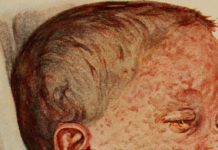
WHO regional director asks countries to pursue policies to reduce cancer incidence
Cancer is far from an equal-opportunity killer. In 2018 – 18.1 million new cases developed worldwide, while around 9.6 million people died from the disease.
70% of those deaths occurred in low and middle-income countries, including those of the WHO South-East Asia Region.
Inadequate access to cancer screening, diagnosis and treatment is the primary cause. In 2017 just 30% of low-income countries reported having appropriate cancer treatment services available. That compares to more than 90% of high-income countries.
Just 26% of low-income countries meanwhile reported having pathology services generally available in the public sector, leading to late diagnosis and a lower chance of successful treatment.
WHO calls for plain-packaging of tobacco products (tobacco is the single largest cause of cancer, making up around 22% of cancer deaths), better regulating alcohol consumption or promoting the virtues of a healthy diet and active lifestyle
Dr Poonam Khetrapal Singh, WHO regional director for Southeast Asia said: “Of pressing need is integrating national cancer control programmes into health systems at every level. While tertiary services are important, they are expensive and generally most effective when a cancer is detected early. To make that happen, effective cancer screening services must be available at both secondary and primary facilities, while health workers must be trained to identify the signs and symptoms that could lead to a positive diagnosis.”
Member States across the Southeast Asia region have taken action. As early as 2015 the Regional Committee adopted a resolution on the way forward for cancer prevention and control, emphasizing the need to strengthen national programmes.
That commitment was fortified in 2017, when the World Health Assembly adopted a resolution that promoted an integrated approach to providing cancer services, and when in 2018 the WHO Global Initiative for Childhood Cancer was launched.
Singh added that countries should also continue to implement policies that prioritize cancer prevention across sectors. That could mean pursuing the plain-packaging of tobacco products (tobacco is the single largest cause of cancer, making up around 22% of cancer deaths), better regulating alcohol consumption or promoting the virtues of a healthy diet and active lifestyle. It could also mean strengthening immunization programmes to ensure everyone receives the hepatitis B vaccine and all females receive the human papilloma virus vaccine.













